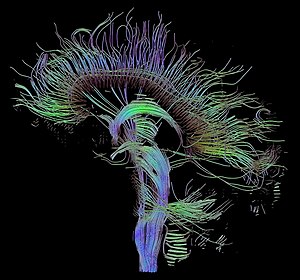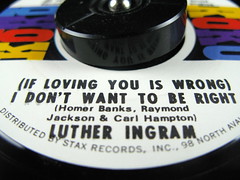[ This post started life as a comment on the
wonderful blog "Watching the Deniers" by
Mike in Melbourne. I am so happy Mike started his blog, because the Climate Disruption Deniers have a very shallow bag of trick, and they have them well worn from
past fake controversies like tobacco carcinogens. So it is great to have a blog dedicated to this. ]
What is the difference between being skeptical and being a denier?
Skepticism can be a positive attribute. Being called a denier is always a slur. Is there a difference? This is how I make the distinction.
(1) If skeptical, you realize the goal is to eventually replace the mainstream narrative with a new, fundamentally different narrative, at a
higher standard of argumentation from statements of certainty. If you are a denier, you are content to perpetually muddy the water to generate fraudulent controversy. The test between the two is that the skeptic will dish out their harshest approbation to people on
their own side who have no capacity for being constructive and who have no capacity to make valid judgments about quality of argumentation; where the denier in comparison will hold embrace any momentarily useful troll.
(2) The mainstream must accept the discipline of the highest standard of argumentation and demonstration - that is only right to be seen as mainstream. If you are a denier, you take this to mean that the enemies of the mainstream are allowed to have
no standard. If skeptical, you allow the opponents of the mainstream to have a lower standard, but a standard none-the-less (a lowered standard is to remain productive until a cohesive alternative narrative has been fully developed). The test is that the skeptic will throw people on
their own side out of their camp if they cannot maintain consistently a minimal standard of quality of argumentation and demonstration. The denier will continually forgive transgressions for any momentarily useful troll.
(3) If skeptical, you take delight in sound results, no matter from your own side or the opposing side. If a denier, you have boos and hisses for all results, no matter how sound, from the opposing side - and cheers and huzzahs for all results, no matter how shabby, from your own side. The true skeptic has more latitude with their boos, hisses, cheers, huzzahs.
(4) if skeptical, you see the value of provisional agreement on results today, perhaps to informed by new facts tomorrow, perhaps not. If a denier, you shriek at
any provisional agreement, no matter how relatively settled it is compared to matters of no discernible meaningful controversy, like planetary orbital physics. If a denier, you shriek at any attempt to blow the foulest vapors of shabby results out of the room. The denier does not need his viewpoint to prevail - the denier is satisfied with a permanent state of cacophony of controversy. The skeptic is motivated by having their viewpoint prevail by quality of argumentation and demonstration.
(5) if skeptical, you see that uncertainty can be a valid reason to act today - for example, I buy home-owners insurance today because of uncertainty. Nobody waits to buy insurance until they get a
letter of intent from an arsonist that their home is scheduled to be set on fire. If you are a denier, you give a privileged status to the
status quo - if a denier you effectively say we must not deviate from the existing state until all uncertainty has been eradicated, which is a
socially acceptable way to say we must not deviate from the existing state
ever.
(6) if skeptical, you value sound results over decorum - all things being equal, decorum is preferred; but no amount of decorum can substitute for sound results. If a denier, there is no amount of production of sound results that can forgive an opponent of a perceived violation of decorum.
These 6 are unnatural for people, because humans will regress to tribal behavior under stress. The are only evident in people who value truth over the status of their own tribe.
In my own case, I am most interested in the economic and political consequences for AGW (Anthropogenic (man-made) global warming) or
climate disruption, and I am not in complete agreement with the mainstream of the AGW believers when it comes to the economics and politics. But the standard is so weak on the alleged skeptical side, I can only meaningfully develop and test my personal ideas with the AGW believers side. That has been my experience. Even
Joe Romm, who is supposedly the worst of the worst of the AGW mainstream believer bullies, has demonstrated nuance when it comes to considering different economic tools.
I would like to see a demonstration that the AGW/climate-disruption mainstream side is worst at being skeptical of their opponents, than the skeptical/denier side. The standard is so low on the AGW alleged-skeptics/deniers side, they would never agree to the above 6 points.
 Image via Wikipedia
Image via Wikipedia![Reblog this post [with Zemanta]](http://img.zemanta.com/reblog_e.png?x-id=8923c4cb-7988-44fd-abb3-cdf375be5ec8)

![Reblog this post [with Zemanta]](http://img.zemanta.com/reblog_e.png?x-id=1b5eae60-23f9-4722-a163-b867a471c05e)

![Reblog this post [with Zemanta]](http://img.zemanta.com/reblog_e.png?x-id=8a2f30fb-f410-449c-8a17-ed20497cb418)


![Reblog this post [with Zemanta]](http://img.zemanta.com/reblog_e.png?x-id=a45e0867-56e0-449d-b738-2bb1af995799)

![Reblog this post [with Zemanta]](http://img.zemanta.com/reblog_e.png?x-id=d8d7b6a9-e3fb-4a78-a535-1cd6028b91d0)

![Reblog this post [with Zemanta]](http://img.zemanta.com/reblog_e.png?x-id=9a8eb446-92bc-4cf5-9380-160baaa9c8b6)

![Reblog this post [with Zemanta]](http://img.zemanta.com/reblog_e.png?x-id=8ebee1f7-3881-4862-9e9c-86c23891b65b)

![Reblog this post [with Zemanta]](http://img.zemanta.com/reblog_e.png?x-id=6a5b9b12-3f64-407e-b1dc-111b6f011d41)

![Reblog this post [with Zemanta]](http://img.zemanta.com/reblog_e.png?x-id=149475cd-ff0e-422e-b20a-a697bb09e0da)